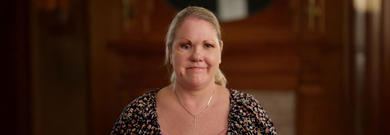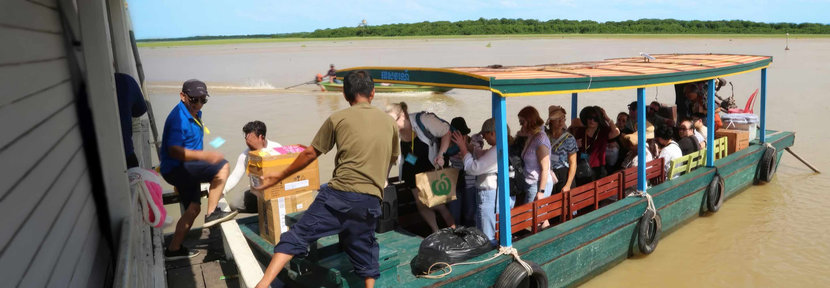Visualización de 5 minutos
17 de noviembre de 2025
GESTIÓN DE LOS ANTIBIÓTICOS
Vídeo
Vanessa Carter’s Journey: Inspiring Action Against AMR
When a personal health crisis becomes a global mission, the impact is extraordinary. Vanessa Carter, a patient with extensive lived experience overcoming antimicrobial resistance (AMR), knows this firsthand. Her journey has sparked a passion for patient advocacy and the fight against AMR.
At age 25, Vanessa survived a devastating car accident that resulted in significant injuries. After years of surgeries, she faced a new battle: a persistent infection caused by methicillin-resistant Staphylococcus aureus (MRSA). That diagnosis marked the beginning of her journey into AMR advocacy—a mission that continues today.
Vanessa’s experience underscores a critical truth: timely, accurate diagnostics save lives. “Diagnostics shouldn’t be a mystery—they’re a lifeline,” she says. Early testing could potentially have prevented complications and shortened her recovery. Today, through her organization, The AMR Narrative, Vanessa empowers patients and communities to take action against antibiotic resistance.
Her message is clear: industry, clinicians, and patients must work together. “Go beyond the lab and into the lives of patients,” she advised Cepheid’s leaders. “Design tools that are clinically effective, accessible, affordable, and culturally relevant. Engage with patients early—understand their realities, fears, and hopes. We must take it personally and work together because lives depend on it.”
Watch Vanessa’s Story Here
Vanessa Carter: Thank you so much for having me. This is me when I was 25 years old—some of the last photos I took. One is with my mother, another of me opening Christmas presents. When I was 25, I was involved in a car accident in Johannesburg. A car overtook us on the wrong side of the road. The driver swerved to avoid a collision, but our car went into a violent spin and crashed into a concrete wall.
I sustained multiple injuries: a major abdominal injury with internal bleeding, a fractured pelvis, neck and back injuries, and a traumatic brain injury. My face had multiple fractures—I broke my jaw and nose, and suffered what they called an "orbital blowout," which meant I lost all the bone beneath my eye. I also lost an eye, leaving me partially blind.
I was resuscitated on the side of the road and taken to a public hospital, where I was placed in high care and given a 30% chance of survival. I underwent numerous surgeries.
In the sixth year of those surgeries, I developed an infection. I had surgery and was discharged, but two weeks later, the infection returned. This cycle repeated—surgery, discharge, infection—for about 11 months. Eventually, the prosthetic implanted in my face was removed. The ENT surgeon told me it had been sent for testing. That was the first time I heard the word "test."
I called the pathology office and asked, “Please, can I see a copy of that test?” I couldn’t understand why this infection was so special. At the top of the report, it said: MRSA. I went online and started researching: “What is MRSA?” That’s when I discovered the term antibiotic resistance. It dawned on me—why had no one discussed this with me?
MRSA became a three-year battle. I told myself, “If I survive this—at 32, 33 years old—if I walk out of here, I want to create change.” Not knowing what antibiotic resistance was had almost killed me.
In 2013, I began advocating. I established a charity called The AMR Narrative, focused on empowering and educating patients and the public. AMR is recognized as one of the top 10 global health threat. It’s predicted to cause more deaths than cancer by 2050. Whenever I speak to people, I remind them: the next infection you get—your antibiotic might not work, just like it didn’t work for me. We must take this personally—very, very personally.
In my case, diagnostics were a game-changer. I’ve met amazing people working in diagnostics who have taught me so much. It reminds me that behind all this technology are people trying to make a difference.
That’s why I believe it’s so important that we work together—because at the end of the day, people’s lives are at stake.
Leer siguiente
MÁS







